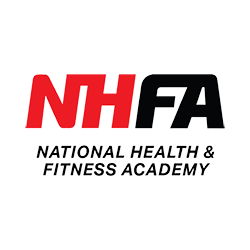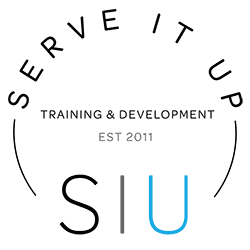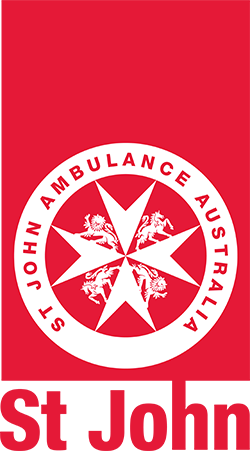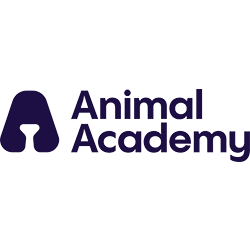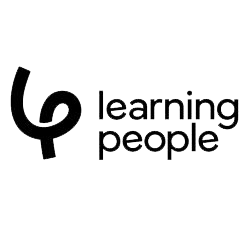In this post
Working in Disability: The Most Rewarding Jobs in the Industry

Disability is an industry that offers varied roles for every passion and every talent. It’s also an in-demand field – the demand is so high for disability workers in Australia that the skills and qualifications required to enter this industry are included on the Australian government’s Priority Skills List, making potential workers eligible for subsidised course fees.
The rollout of the National Disability Insurance Scheme (NDIS) in Australia has also brought many new job opportunities in the sector.
Many jobs in the sector pay well and/or have opportunities to work part-time and flexibly.
Jobs in the disability sector | Median pay |
|---|---|
Disability support worker | $59k |
Allied health worker in the disability sector | $79k |
Support coordinator | $79k |
Access and inclusion work | $70k |
Disability advocacy | $90k |
1. Disability Support Worker
The role involves:
- Providing personal care, such as assistance with dressing and hygiene.
- Taking clients to appointments, social activities and outings, and to the shops.
- Preparing meals and helping with household chores.
- Providing clients with social connection and support.
- Helping clients build skills that enable them to live independently.
Disability support workers (or carers) provide long-term, hands-on support services for clients with disabilities. They’re typically employed by disability service providers and support clients in their own homes and in the community.
They may also offer respite services: where families will usually care for an individual, a respite care worker enables families to take a break from caring duties.
You don’t technically need a qualification to become a disability support worker. However, many employers will prefer candidates to have completed TAFE studies in related areas.
Plus, getting a qualification is a useful way to learn about the industry, how to do the job well and safely and learn how to uphold the National Standards for Disability Services.
Relevant courses may overlap disability and aged care, and include:
- Certificate III in Home and Community Care
- Certificate III in Disability Support
- Certificate III in Individual Support
- Assistant in Nursing qualifications (such as Certificate III in Health Assistance or similar)
Average disability support worker salary:
Low
$56k
median
$63k
high
$77k
2. Allied health worker
Allied health workers use their specialist training and skills to promote the wellbeing of clients.
Allied health workers include:
Physiotherapists
They treat a wide range of conditions and injuries with exercises, massage and manipulation, and specialised tools. Physiotherapists can choose to specialise in rehabilitation (e.g. working with clients recovering from strokes or car accidents), or in specific disabilities/health conditions.
Occupational therapists
They help people experiencing injury and disability participate in their life as fully as possible. This may involve prescribing exercises, showing people adaptive tools, and activity and environment modification.
Social workers
They help people encountering problems in their life by providing emotional and practical support. In the disability sector, they can provide talk therapy, mental health support, make action plans to help people through challenges (e.g. returning to work, experiencing inaccessibility), and connect people to resources.
Speech pathologists
They assess, diagnose, and treat communication and swallowing disorders in adults, young people, and children.
Allied health workers are highly skilled professionals and working in these professions tends to require relevant training. At a minimum, you would be required to complete a relevant Bachelor’s degree qualification (which takes around 3 years full-time). Some specialisations may require further study.
What’s an alternative pathway into allied health?
If you’re looking to dip your toes into allied health work, alternative pathways are also possible. Some TAFE courses (such as Certificate IV in Allied Health Assistance) will qualify you to assist in service delivery under professional supervision. Working as an allied health assistant is rewarding work that will give you a good idea of what allied health is all about.
This can help you to get a feel for the job, and get paid for your work, before making an informed choice about whether to undertake further studies.
Average allied health worker salary:
Low
$56k
median
$72k
high
$111k
Average allied health assistant salary:
Low
$52k
median
$56k
high
$67k
3. Support coordinator
Like support workers, support coordinators are dedicated to increasing the independence of people living with disabilities. However, their work is less hands-on, and more focused on opening opportunities and thinking strategically. They work with individual clients to increase their confidence and ensure they’re well-supported.
The role involves:
- Helping people successfully apply for the NDIS, for JobActive opportunities, the Disability Support Pension (DSP), or similar government-provided support.
- Providing disability employment services to support clients in their existing jobs or to look for the right job for them.
- Supporting clients to use their NDIS funding in ways that are suitable to them and directed by them.
- Planning and coordinating career, education, and volunteering opportunities for people with disabilities.
- Helping people with disabilities build their skills, confidence, and healthcare and support networks.
Relevant requirements to enter this field might include:
Typically, there are no specific qualifications that are required for these roles. That said, many job advertisements expect some form of qualification in:
- Disability
- Social work
- Case management
It may be possible to gain entry from work experience, such as disability support work. You’ll also need to undergo a police check.
Average support coordinator salary:
Low
$70k
median
$82k
high
$102k
4. Access and inclusion
Many organisations, such as larger workplaces, TAFEs, and universities, employ people who ensure that policies and practices enable and encourage inclusion.
These roles have a range of titles, including (but not limited to):
- Access and Inclusion Coordinator
- Disability Liaison Officer
- Accommodation Manager
Regardless of job title, these workers ensure that organisations are a safe, inclusive place where everyone has an equal opportunity to thrive.
The role involves:
- Helping organisations identify opportunities to be more inclusive. For example, making buildings wheelchair accessible, installing hearing loops, and audio captioning recordings.
- Working with staff members or students with disabilities to help identify what access arrangements would support their work/learning, and making plans to implement those arrangements.
- Educating members of the organisation about disability and inclusion and putting together helpful fact sheets for reference.
- Helping the organisation meet its statutory requirements for making reasonable adaptations for staff/students.
- Reviewing new policies to consider their impact on access and inclusion.
Relevant requirements to enter this field might include:
Although these roles don’t tend to require any specific qualifications, you do need to demonstrate a thorough understanding of a wide range of disabilities. Lived experience can be particularly valuable, as can previously work in the disability sector.
Qualifications that would be advantageous include:
- Management
- HR
- Education Support
- Social work
- Disability and community services
- Or similar qualifications
You would also likely need to pass a police check.
Average access and inclusion salary range:
While the role of access and inclusion currently doesn’t have average salary data, recent job advertisements for this role reveal a salary range of $70-130k.
salary range
$70k to $130k
Job advertisement data was listed on Indeed.
5. Advocate
A range of non-profit organisations, hospitals, and government bodies employ advocates. When people in the community have complaints such as discrimination or exclusion, an advocate can be involved in resolving the situation and ensuring that individual rights are protected.
Some advocates will work on behalf of a range of marginalised groups, others specialise, for instance, in disability advocacy.
Working as an advocate may involve:
Helping people go through complaints procedures.
This involves understanding the correct and most effective avenues for complaints and filing relevant paperwork on behalf of clients.
Managing disagreements and complaints
Such as mediating disagreements, and escalating complaints if an appropriate resolution hasn’t been found.
Assessing clients to make submissions.
For example, submissions to Royal Commissions or reviews.
Reviewing government and organisational decisions.
Reviewing decisions made by governments or organisations to check if it upholds legal and social justice principles.
Advocating for those who can’t advocate for themselves.
In hospital settings, potentially advocating for individuals who are too unwell to drive their own advocacy. This may involve seeking second opinions, ensuring your client consents to treatment, and ensuring they’re getting appropriate care.
Empowering clients through knowledge and resources.
Generally, advocates will empower clients to speak for themselves but will provide useful knowledge and resources to assist. For example, they may know the relevant legislation or policies that the individual can use to make their complaint more effective.
Educating clients.
Teaching self-advocacy skills to people with disabilities and their families and friends.
Relevant requirements to enter this field might include:
Advocates do not require any specific qualifications. However, they will be knowledgeable about legal frameworks and social justice.
Studies in these areas can be incredibly useful:
- Law
- Disability studies
- Gender studies
- Political science
- Sociology
Average advocate salary:
Low
$80k
median
$92k
high
$119k
There are many ways you can make a positive difference in the lives of people with disabilities. The sector needs passionate people with a range of skill sets and experiences to bring care, support, creative strategies, inclusion, and justice to this diverse community.
Browse Disability Results
Complete Personal Trainer Program – Certificates III & IV in Fitness (VIC, NSW, QLD, SA & WA Only) SIS30321,SIS40221
Our Personal Trainer Program is a combined Certificate III and Certificate IV in Fitness course that is simply the very best way to become a fully qualified personal trainer. NHFA is devoted to excellence in teaching, learning, implementation, and to d...
Diploma of Nursing (SA and WA Only) HLT54121
Build a meaningful career that makes a difference with the HLT54121 Diploma of Nursing. This nationally recognised qualification provides the essential skills, knowledge, and practical training needed to become a qualified Enrolled Nurse in Australia....
Certificate IV in Training & Assessment TAE40122
The TAE40122 Certificate IV in Training and Assessment is a life-changing qualification designed to help everyday people pass on their wealth of knowledge and expertise to others. This entry-level qualification is the most current version of the Certif...
Certificate IV in Hospitality (Melbourne Only) SIT40422
Our government-funded SIT40422 Certificate IV in Hospitality offers comprehensive training, including RSA certification, Food Handler’s certificate, bar and cocktail making, beer knowledge, espresso coffee skills, food and beverage service, an introduc...
Certificate IV in Leadership and Management (VIC Only) BSB42015
This program provides participants with the essential knowledge and skills to undertake management positions. This includes assuming responsibility for their own performance, providing leadership, guidance and support to others. Develop the knowledge a...
Pilates Matwork Instructor Course
Standout in the fitness and wellness industry with an accredited Mat Pilates Qualification! This course is a great opportunity to add a new skill set to your existing career or bundle with fitness certifications to establish yourself as a diverse, mult...
Fast Track PT Course SIS40221
Turn your love of fitness into a career and get on the fast track to becoming a qualified Personal Trainer. After completing the nine Fitness Fundamental units, you’ll then launch straight into the SIS40221 Certificate IV in Fitness and complete all th...
Certificate IV in Fitness SIS40221
Take the next step in your career and gain the qualification you need to become a Personal Trainer. If you currently work in the fitness industry as a Gym or Group Fitness Instructor, elevate yourself to the next level by studying the SIS40221 Certific...
Certificate III in Fitness SIS30321
If you’re looking to begin your career in the fitness industry, studying the SIS30321 Certificate III in Fitness is the perfect qualification to get you started. Gain all the knowledge and skills you need to enter the industry as a Gym Instructor or Gr...
Personal Trainer Course SIS30321,SIS40221
Join the fitness industry as a Personal Trainer and turn your love for fitness into a rewarding career by graduating in both the SIS30321 Certificate III in Fitness & SIS40221 Certificate IV in Fitness. Enjoy the flexibility of being your own boss...
Climate Reporting Fundamentals
Discover the world of climate and sustainability reporting with this comprehensive short course and micro-credential. This training course will increase your understanding of climate reporting requirements and how these will affect your business by exa...
Upskill in climate and sustainab...
Certificate III in Animal Care Services ACM30122
The Certificate III in Animal Care Services is designed as a general industry qualification to prepare students to embark on a career as an animal carer. The Animal Academy focuses learning around the requirements of a kennel hand in animal care facili...
Certificate III in Individual Support (Ageing & Disability) (QLD Only) CHC33021
This Nationally Accredited Certificate III in Individual Support (Ageing & Disability), will give you the skills and knowledge to work in the Ageing and Disability care industry and support those who are most vulnerable! Work in one of the most rew...
Certificate IV in Youth Work CHC40421
The Certificate IV in Youth Work is ideal for those who are passionate about making a difference in the lives of young people. You’ll gain the skills and knowledge to develop and implement programs that address their social, behavioural, health,...
Systems Security Certified Practitioner (SSCP)
Why choose the Systems Security Certified Practitioner (SSCP)? The SSCP certification is recognised internationally as a benchmark for IT security expertise and is designed to validate the knowledge and skills necessary to implement, monitor and admini...
Project Management Professional – PMP
Why choose the Project Management Professional – PMP? The Project Management Professional Course is an in-depth course that enables project professionals to significantly improve their understanding of the intricacies and challenges of Project Manageme...
PRINCE2® Pathway
Why choose the PRINCE2® Pathway? PRINCE2® is a globally recognised project management methodology, and its adaptability lets you manage projects of all sizes, using industry best practice. Passing the PRINCE2® Foundation certification demonstrates your...
PRINCE2® Practitioner
Why choose the PRINCE2® Practitioner? If you’re looking to build on your foundational understanding of PRINCE2® Project Management methodology then this course is for you. PRINCE2® (Projects IN Controlled Environments) is a globally recognised framewor...
PRINCE2® Agile Practitioner
Why choose the PRINCE2® Agile Practitioner? PRINCE2® is a globally recognised project management methodology, and its adaptability lets you manage projects of all sizes, using industry best practice. The PRINCE2® Agile Practitioner course is an extensi...
PRINCE2® Foundation
Why choose the PRINCE2® Foundation? PRINCE2® is the global standard for project management, and this certificate gets you well on the way to a rewarding and lucrative role as a project manager. The course will give you a clear understanding of the PRIN...
Online courses also available
Latest Articles
Agriculture Careers: What You Should Know in 2025
As one of Australia's most important industries, the agriculture industry offers great career opport...
Are Digital Skills the Key to Job Security in 2025?
The digital revolution is here, and it doesn’t care if you have a technical job or not — it’s coming...
How to Become a Chef in Australia: Complete Guide for 2025
The complete guide to becoming a chef in Australia. Learn how to get your start and make it in the h...
Want to read more?
How to Finance a Career Change Later in Life
Find out how to minimise the financial risk of making a career change over 40 with tips from Savvy F...
Cover Letter for Customer Service
Want to land a customer service or customer engagement job? Get a head-start on drafting the perfect...
Hospitality Cover Letter Example
Discover the key points to include in any hospitality cover letter. Use this sample hospitality cove...
